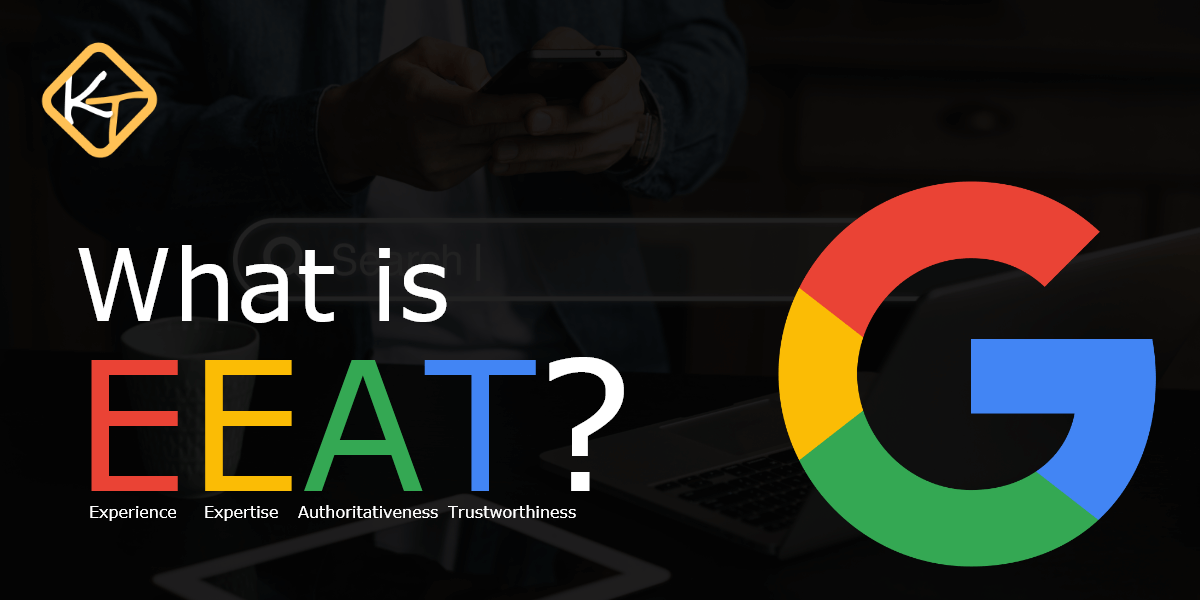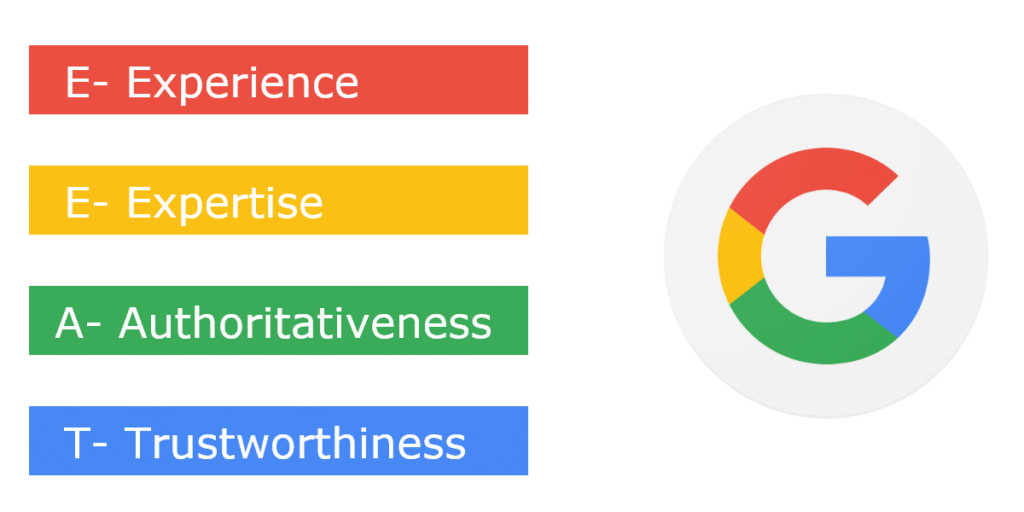
In today’s search landscape, ranking high on Google is no longer about keyword stuffing or backlinks alone. As Google integrates more AI into its search systems, it has become smarter at judging content quality, trust, and authenticity.
That’s where E-E-A-T comes in. This framework — standing for Experience, Expertise, Authoritativeness, and Trustworthiness — helps Google assess how credible and valuable a piece of content truly is.
If you want your website to perform well in this AI-powered search era, understanding E-E-A-T is essential. Let’s break it down and explore how you can apply it effectively.
The Origin of E-E-A-T
Google introduced the concept of E-A-T (Expertise, Authoritativeness, and Trustworthiness) back in 2014 within its Search Quality Rater Guidelines — a manual used by human evaluators to assess search results.
In 2022, Google added another “E” — Experience — making it E-E-A-T. The goal was to emphasize first-hand experience in content creation, especially in topics that affect people’s lives, money, or well-being (known as YMYL – Your Money or Your Life pages).
In simple terms, Google’s E-E-A-T ensures users get accurate, credible, and experience-based content — not generic AI-written or copied material.
The Four Pillars of E-E-A-T

1. Experience
This is the most recent addition and arguably one of the most important in the AI era. Google wants to see if the content creator has real, hands-on experience with the topic.
For example:
- A travel blogger writing about Paris should have actually visited Paris.
- A web developer writing about React.js should have built projects with it.
- A fitness coach discussing nutrition should have real-world training experience.
How to show Experience:
- Use personal stories, screenshots, or case studies.
- Share original data or project results.
- Write from first-person perspective where appropriate (“In my experience…”).
Experience gives your content authenticity that AI-generated material can’t replicate.
2. Expertise
Expertise means in-depth knowledge and skill in a specific topic. It shows that the content author understands the subject thoroughly and can provide accurate, reliable insights.
For example:
- A certified accountant writing tax guides.
- A professional web developer explaining JavaScript frameworks.
- A doctor providing health advice (not a generic writer).
How to demonstrate Expertise:
- Display author bios with credentials.
- Publish content reviewed by specialists.
- Keep information factually correct and updated.
- Use precise terminology relevant to your niche.
Google uses these signals to decide whether you’re a trusted source or just paraphrasing content from elsewhere.
3. Authoritativeness
Authoritativeness is about reputation — how others in your industry view your website or brand. It reflects whether your content is referenced, cited, or respected by others.
For instance:
- When other sites link back to your guides.
- When your name or brand appears in trusted media.
- When users frequently mention or share your posts.
How to build Authoritativeness:
- Earn high-quality backlinks from reputable websites.
- Collaborate with industry leaders or thought influencers.
- Get featured in interviews, podcasts, or guest posts.
- Use consistent branding across all online platforms.
The more authoritative your site appears, the higher Google is likely to rank it — especially in competitive niches.
4. Trustworthiness
Trust is the foundation of E-E-A-T and the single most important factor. Even with great expertise and experience, your content won’t perform well if it’s not considered trustworthy.
Trust covers everything from content accuracy to website security and transparency.
Ways to increase Trustworthiness:
- Use HTTPS (secure your website).
- Clearly list contact details and business information.
- Avoid exaggerated or misleading claims.
- Cite credible sources for data or statistics.
- Include privacy policies and transparent disclaimers.
A trustworthy website is one where users — and Google — feel safe relying on the information provided.
Why E-E-A-T Matters More Than Ever in 2025

With Google’s AI models like Gemini and Search Generative Experience (SGE) changing how search results appear, E-E-A-T now acts as a quality filter.
AI can generate thousands of articles instantly, but Google’s systems prioritize:
- Content from real experts with verifiable backgrounds.
- Websites that show consistent trust signals.
- Pages that demonstrate experience rather than generic text.
In short, E-E-A-T helps separate human expertise from AI noise. If your content aligns with these principles, it’s far more likely to be featured in search snippets, AI summaries, and top rankings.
How Google Measures E-E-A-T
E-E-A-T isn’t a single ranking factor like speed or mobile optimization. Instead, it’s a collection of signals that Google’s algorithms and human evaluators use together.
Some of those signals include:
- Author and site reputation (mentions, reviews, citations).
- Backlink quality and domain authority.
- User engagement (bounce rate, dwell time, return visits).
- Content freshness and update frequency.
- Accuracy and originality of information.
So, while you can’t “optimize” E-E-A-T with one tag or setting, you can consistently demonstrate trust, authority, and experience across your content.
How to Improve E-E-A-T on Your Website
1. Add Author Bios and Credentials
Show who wrote the content, their background, and qualifications. A simple author box with a short bio, LinkedIn link, or professional photo builds instant credibility.
2. Use Real Case Studies and Data
Whenever possible, include screenshots, project outcomes, or client stories. These prove experience and authenticity.
3. Maintain Transparency
Include an “About Us” page, contact info, and disclaimers (especially for YMYL topics). Transparency improves trust.
4. Keep Content Updated
Review and refresh your articles regularly. Outdated information signals low expertise and can harm trust.
5. Build Backlinks Naturally
Focus on earning mentions from respected websites, not buying links. Guest posts and collaborations help build authority.
6. Optimize Technical Trust
Use SSL, fix broken links, and ensure fast loading times. Technical reliability supports user trust.
7. Leverage Social Proof
Include testimonials, awards, and client feedback. These external validations strengthen your site’s authoritativeness.
E-E-A-T for Different Types of Websites
For Blogs and Publishers
Highlight authorship, add sources for claims, and demonstrate experience through storytelling.
For Business Websites
Focus on brand reputation, reviews, and verified contact details.
For E-Commerce Stores
Show customer reviews, trust badges, refund policies, and detailed product information.
For Health, Finance, or Legal Sites
Ensure all content is written or reviewed by qualified professionals. Provide disclaimers for advice.
For Tech or Development Sites
Use real code examples, screenshots, or live demos to prove hands-on expertise.
The Connection Between E-E-A-T and AI SEO

As AI search continues to evolve, Google’s systems rely heavily on E-E-A-T signals to filter reliable information from AI-generated spam.
Here’s why:
- AI can create content quickly, but lacks personal experience.
- Google prefers pages that reflect human understanding and credibility.
- E-E-A-T is the benchmark that ensures real people still rank above machines.
This means investing in human-authored, experience-driven content is one of the best long-term SEO strategies for 2025 and beyond.
Common Myths About E-E-A-T
“E-E-A-T is a ranking factor.”
Not exactly. It’s not a single algorithmic score, but it influences many ranking signals.
“E-E-A-T only matters for YMYL sites.”
Wrong — while it’s critical for YMYL topics, Google applies it to all industries to ensure trustworthy results.
“Small sites can’t build E-E-A-T.”
Completely false. Even small creators can demonstrate experience, gain backlinks, and show trust — sometimes more effectively than big brands.
The Future of SEO with E-E-A-T
As AI and machine learning continue to redefine search, E-E-A-T will become the foundation of ethical SEO.
The winners in this new era will be brands and creators who:
- Produce original, experience-based content.
- Build real-world authority through reputation and collaboration.
- Maintain trust through transparency, accuracy, and user focus.
In other words, the future of SEO belongs to those who create with purpose, not just for rankings.
Conclusion
E-E-A-T is more than an acronym — it’s a philosophy of trust and authenticity in the age of AI-driven search.
By showing real experience, expertise, authority, and trust, you’re not just optimizing for Google — you’re creating better content for real people.
If you focus on helping users first, Google’s algorithms will follow. That’s the true essence of E-E-A-T and modern SEO.
💡 Want to improve your website visibility in the AI era?
Let’s create an SEO-optimized website that’s built for speed, trust, and performance.
Contact us today to discuss how we can future-proof your online presence.
